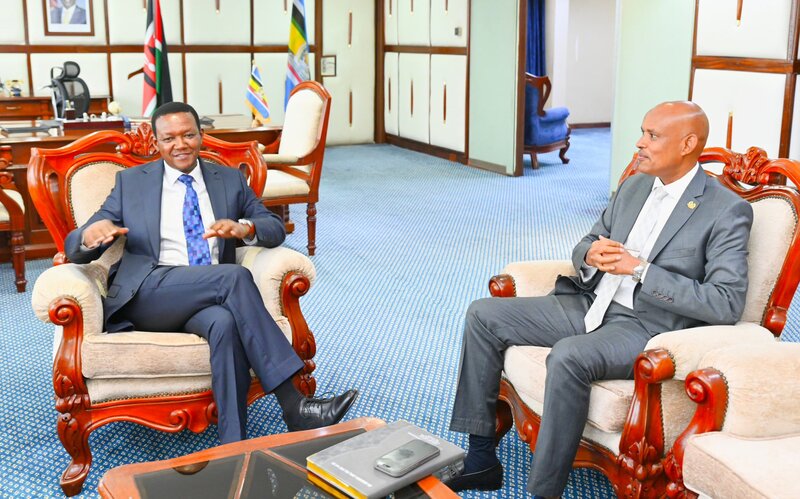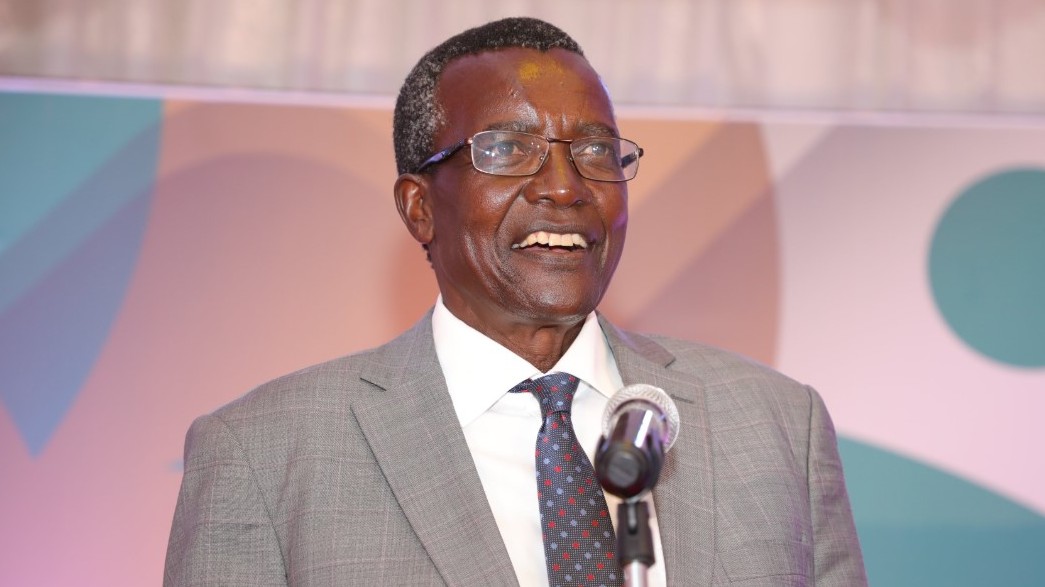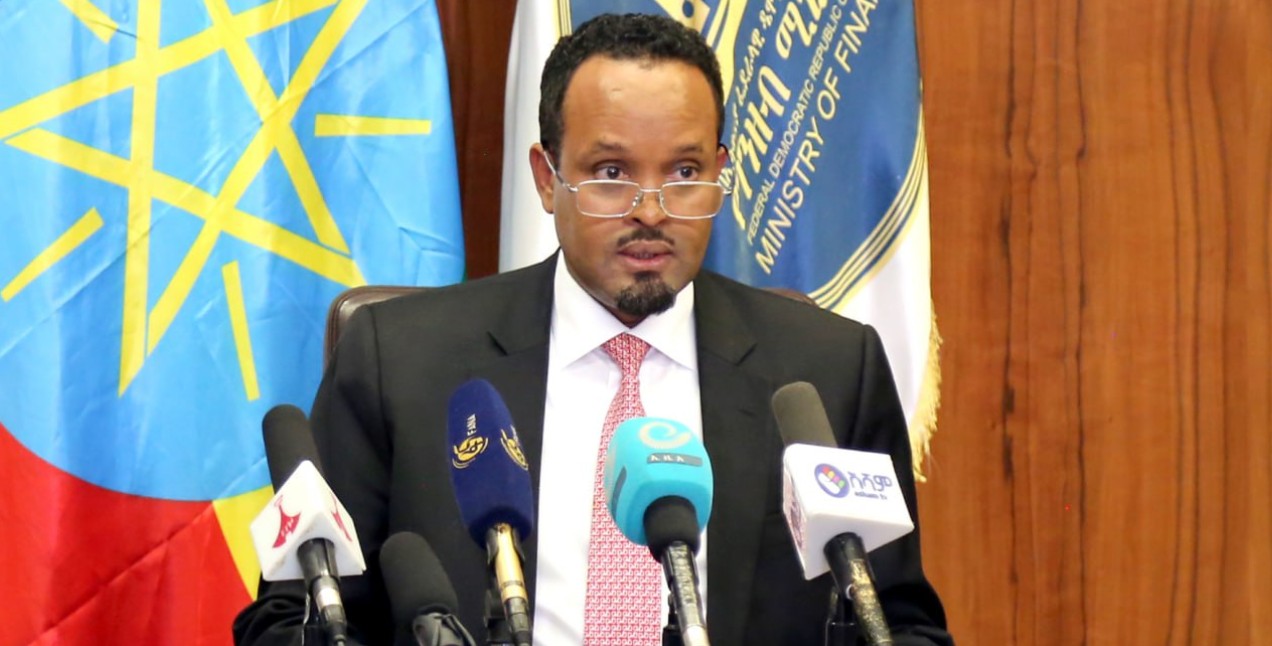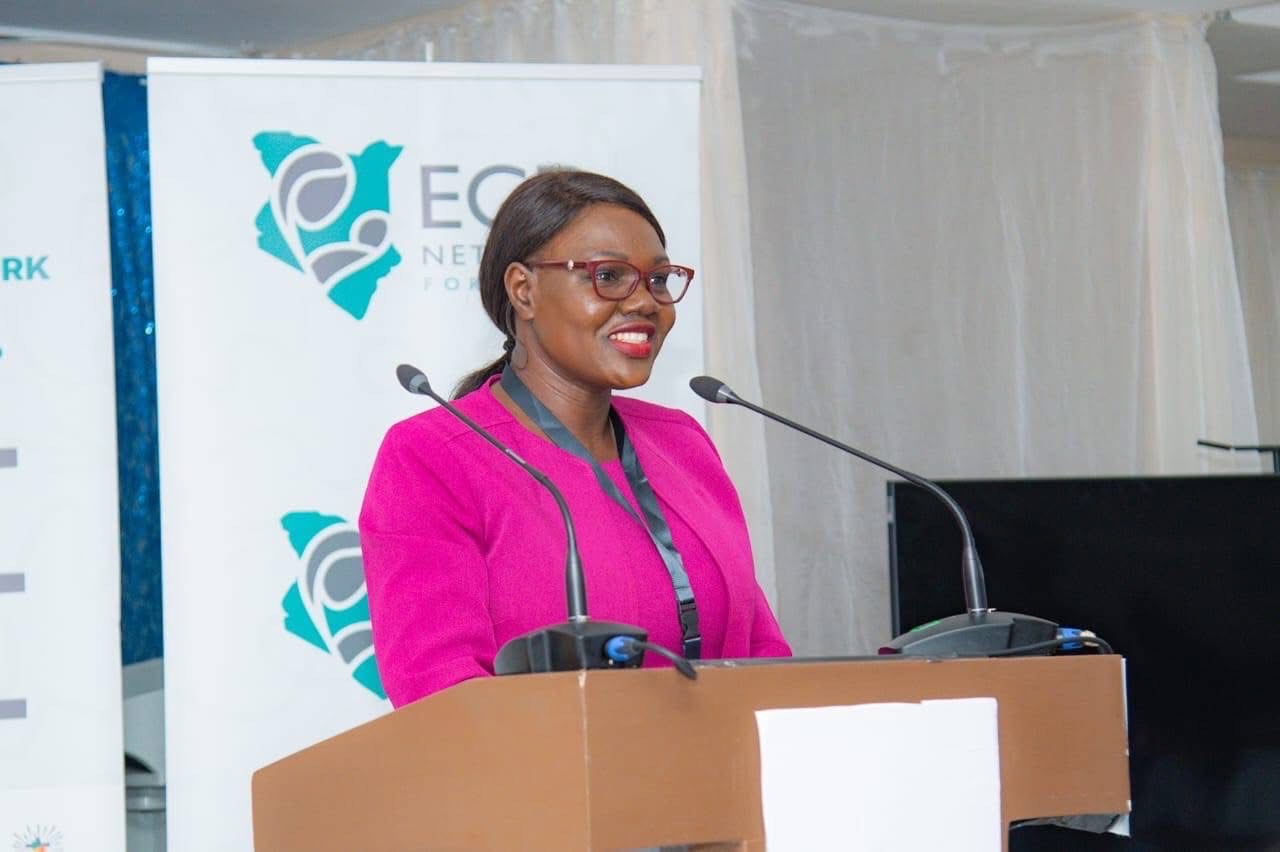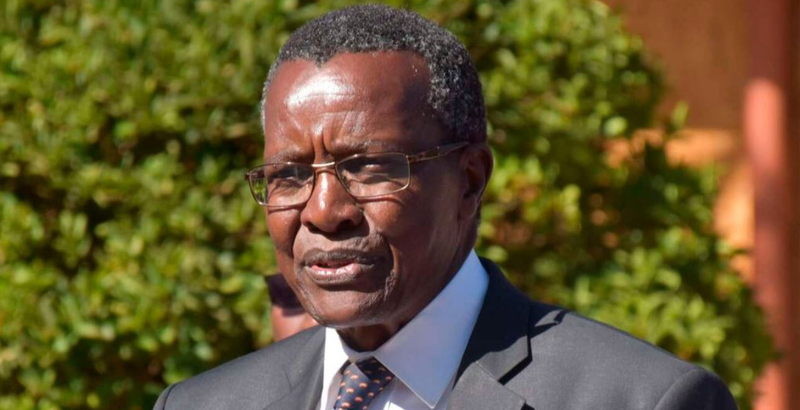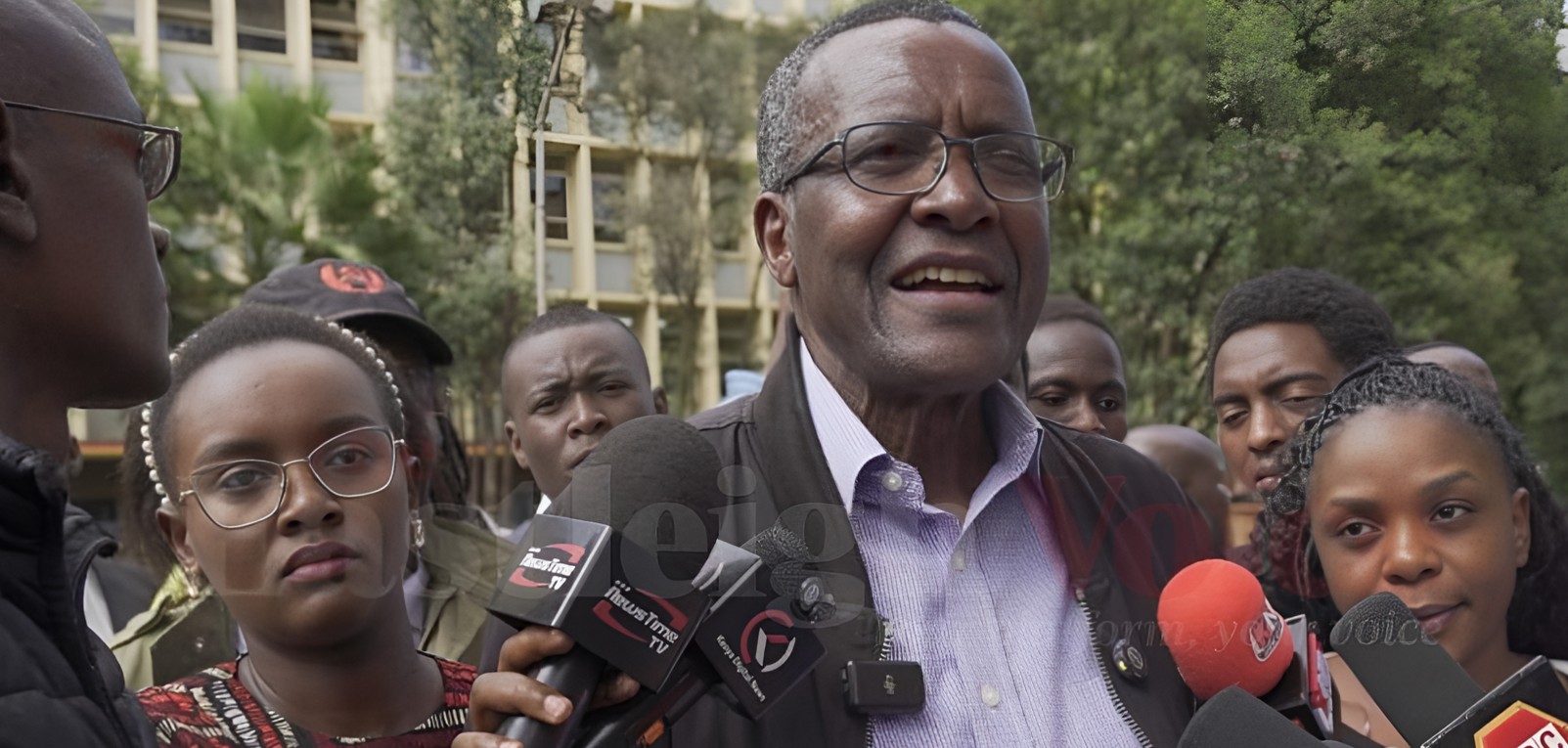Ad-hoc committee report exposes FKF’s rot, president Hussein Mohammed promises overhaul

The Football Kenya Federation (FKF) Transition Ad-Hoc Committee has laid bare deep-rooted governance, financial, and operational failures within the organisation. In response, FKF President Hussein Mohammed has pledged a raft of reforms, including financial restructuring, referee professionalism, and improved legal frameworks to restore credibility to Kenyan football. The report, presented on Wednesday, details unethical hiring practices, a debt crisis nearing Sh 400 million, and rising match-fixing cases, setting the stage for sweeping changes at the federation.
Football Kenya Federation (FKF) President Hussein Mohammed has pledged sweeping reforms in the management of Kenyan football after receiving the FKF Transition Ad-Hoc Committee’s report on Wednesday morning. The report assessed the federation’s internal systems and exposed serious governance, financial, and administrative shortcomings.
Hussein Mohammed, elected FKF President on December 7, 2024, formed the FKF Transition Ad-Hoc Committee on December 21, 2024, to oversee a smooth transition in FKF operations. The committee was tasked with evaluating the federation’s human resource policies, financial management, and legal framework.
Chaired by FKF Vice President McDonald Mariga, the committee was also mandated to propose governance reforms, safeguard institutional integrity, prepare the incoming leadership, and address administrative and financial gaps. Other committee members included FKF Women Representative Kerubo Momanyi (vice chairperson), Eastern NEC Member Charles Njagi (secretary), Upper Rift FKF Branch NEC Member Bernard Lagat, Central NEC Member Robert Macharia, North Eastern NEC Member Ahmedqadar Mohammed Dabar, and Lower Rift NEC Member Peter Kamau. The committee completed its work on January 31, 2024.
The committee uncovered severe irregularities in FKF’s human resource policies. Mohammed revealed that the previous administration lacked an official HR policy, leading to inconsistencies in recruitment, employment contracts, and payroll management.
“There was a disturbing pattern of potential fraud and irregular hiring processes,” Mohammed said. “Employment contracts lacked basic security features and were irregularly signed, raising concerns over their authenticity.”
The report also highlighted salary disparities due to the absence of a structured grading system. To rectify these issues, Mohammed endorsed the committee’s recommendations for a forensic audit, an HR policy overhaul, and the introduction of a standardized salary grading system.
The report cited increasing cases of poor officiating, match manipulation, and hooliganism, which have significantly affected the integrity of the game. Mohammed noted that referees had been accused of accepting bribes and engaging in match-fixing, while incidents of violence at stadiums had raised safety concerns.
In response, FKF plans to implement a merit-based system for referee promotions, introduce a strict code of conduct for match officials, and invest in training to improve officiating standards. Mohammed also pledged to push for legislative measures to combat match-fixing.
Debt crisis
One of the most alarming revelations in the report was FKF’s dire financial state. The committee found that FKF operated 16 bank accounts yet was burdened with a debt of Sh383,940,846.70.
“The accounts lack clear purpose and transparency. We owe nearly 400 million to external agencies and service providers,” Mohammed said. The committee also noted that financial mismanagement had left women’s and youth football severely underfunded.
To address these challenges, FKF has committed to consolidating its accounts, restructuring its debts, and increasing investment in grassroots football.
The report also highlighted FKF’s entanglement in 21 legal cases stemming from poor administration. These include disputes over past elections, unpaid legal fees, and other contractual matters.
“The growing number of legal disputes is a major financial strain on FKF’s resources,” Mohammed noted. To mitigate this, FKF will establish a legal panel to streamline dispute resolution, harmonize legal fees, and review pending cases to ensure only necessary matters proceed.
The FKF President confirmed that the report would be presented to the National Executive Committee (NEC) for validation before being made public. He urged football stakeholders, government bodies, clubs, and fans to support the implementation of reforms aimed at restoring credibility in Kenyan football.
“This is a defining moment for Kenyan football. We must act decisively to rebuild trust and ensure the sport is managed professionally,” Mohammed concluded.
Top Stories Today


